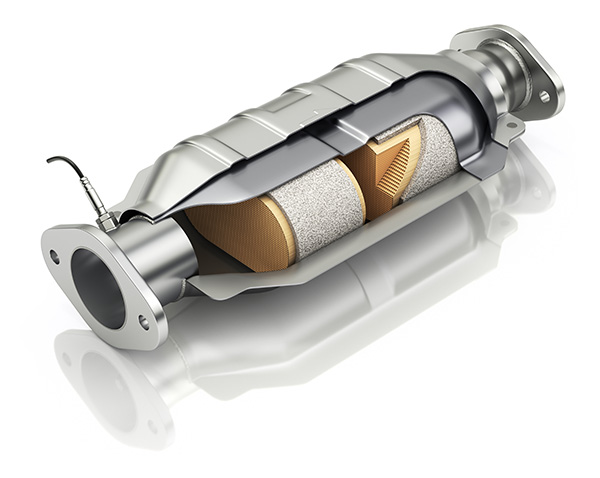
Your car’s oxygen sensor might be small, but it plays a big role in keeping your engine running efficiently and protecting other vital components, especially your catalytic converter. Many drivers are unaware that ignoring a failing oxygen sensor can ultimately lead to more significant and costly issues. Replacing this sensor on time helps you avoid costly repairs and maintain peak vehicle performance.
What Does the Oxygen Sensor Do
The oxygen sensor measures the amount of oxygen in your car’s exhaust gases and sends this data to the engine control unit (ECU).
Based on this information, the ECU adjusts the air-fuel mixture to ensure optimal combustion. This process helps improve fuel efficiency, reduce emissions, and maintain smooth engine performance.
What Happens When an Oxygen Sensor Fails
When an oxygen sensor starts to fail, it can no longer provide accurate data to the ECU. As a result, your engine might run too rich (too much fuel) or too lean (too much air).
Running rich can cause excess fuel to enter the exhaust system, while running lean can lead to higher combustion temperatures and potential engine damage. Either condition can trigger a check engine light and affect your car’s drivability and fuel economy.
The Link Between Oxygen Sensors and Catalytic Converters
Your catalytic converter is responsible for converting harmful gases into less harmful emissions before they leave the tailpipe. When an oxygen sensor fails and causes the engine to run rich, unburned fuel can reach the catalytic converter.
This extra fuel causes the converter to overheat, leading to internal melting or clogging. Once damaged, a catalytic converter is expensive to replace and can cost thousands of dollars, far more than the price of a new oxygen sensor.
Warning Signs of a Bad Oxygen Sensor
There are several clues that your oxygen sensor might be failing:
- Check engine light illumination.
- Decreased fuel efficiency.
- Rough idling or stalling.
- Poor acceleration.
- Strong smell of fuel from the exhaust.
If you notice these symptoms, it’s important to get your car checked promptly to prevent further damage.
How Often Should You Replace an Oxygen Sensor
The lifespan of an oxygen sensor depends on your car’s make and model, as well as your driving conditions.
Most manufacturers recommend replacing the sensor every 60,000 to 100,000 miles. However, vehicles that are driven in stop-and-go traffic, used for towing, or subjected to extreme temperatures may require more frequent replacement.
Benefits of Proactive Replacement
Replacing your oxygen sensor before it fails completely offers several advantages:
- Protects your catalytic converter from premature failure.
- Improves engine performance and fuel efficiency.
- Reduces emissions and helps your vehicle pass smog tests.
- Prevents costly repairs down the line.
Being proactive not only saves money but also helps keep your car reliable and environmentally friendly.
Importance of Professional Diagnosis
Although some drivers try to diagnose or replace oxygen sensors themselves, a professional diagnostic check ensures that the problem is accurately identified.
Modern vehicles have multiple oxygen sensors, and using professional tools to read fault codes and monitor sensor performance helps avoid unnecessary part replacements and guesswork.
Don’t Ignore the Check Engine Light
Many drivers ignore a check engine light if the car continues to run smoothly. However, even if your vehicle feels normal, a failing oxygen sensor could be silently damaging your catalytic converter.
Addressing the issue as soon as the light appears is the best way to avoid more extensive and expensive repairs.
Trust Oceanworks Berkeley in Berkeley, CA
At Oceanworks Berkeley in Berkeley, CA, we can diagnose and repair emission system components, including oxygen sensors and catalytic converters. Our experienced technicians use advanced diagnostic equipment to pinpoint issues quickly and accurately, ensuring your vehicle stays efficient and compliant with emission standards.
If you’ve noticed a check engine light, poor fuel economy, or other performance issues, don’t wait until it damages your catalytic converter.
Schedule an inspection with us today and protect your vehicle and your wallet from unnecessary repairs.